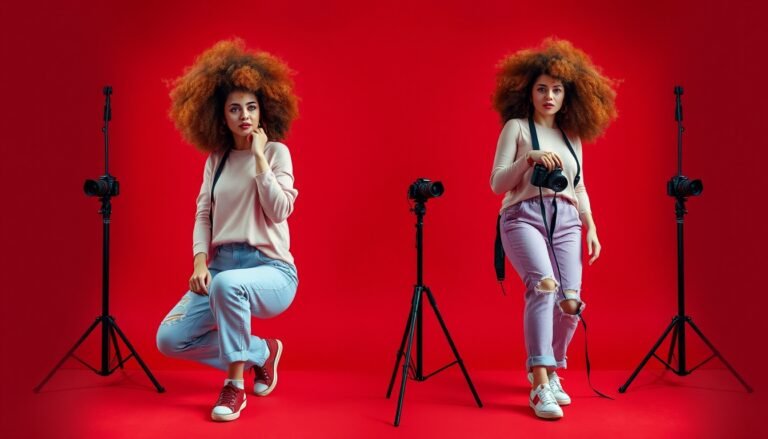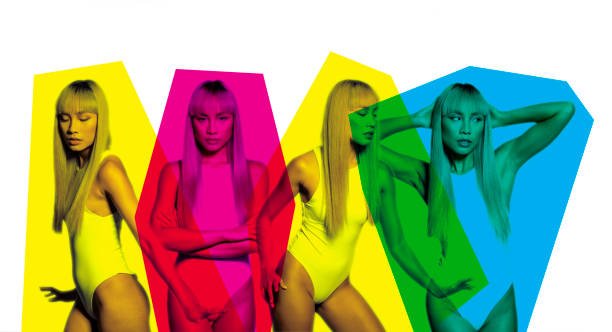How AI is Revolutionizing Personal Style

Imagine walking into your favorite store, and every outfit is practically calling your name, perfectly tailored to your style and body type. This isn’t a scene from a sci-fi movie—it’s the future of fashion, driven by artificial intelligence (AI). From personalized recommendations to predicting trends, AI is revolutionizing the fashion industry in ways we once only dreamed of. Join us on this exciting journey as we explore how AI is changing the game for fashion enthusiasts like you.
What is AI and How is it Shaping Fashion?
Artificial Intelligence, or AI, refers to the simulation of human intelligence in machines that are programmed to think and learn. In the world of fashion, AI is used to analyze data, predict trends, and offer personalized shopping experiences. But what does this mean for you? Simply put, AI is making fashion more accessible, personalized, and exciting.
With AI, brands can understand your style preferences better than ever before. Imagine receiving curated collections that feel like they’ve been designed just for you. That’s the magic of AI in fashion.
Personalized Shopping Experiences
One of the most exciting applications of AI in fashion is personalized shopping. Gone are the days of endless scrolling through items that don’t quite fit your style. AI algorithms analyze your browsing history, previous purchases, and even your social media activity to recommend products that match your unique taste.
For example, platforms like Stitch Fix use AI to curate personalized clothing selections. You fill out a style quiz, and voila! A personal stylist, powered by AI, sends you items tailored to your preferences. This not only saves you time but also ensures you look fabulous.
Predicting Fashion Trends
Ever wondered how some brands always seem to be ahead of the curve? They’re likely using AI to predict fashion trends. AI analyzes vast amounts of data from social media, fashion shows, and consumer behavior to forecast what’s hot and what’s not.
This means brands can produce items that are more likely to be popular, reducing waste and ensuring you have access to the latest trends. For instance, companies like Edited use AI to monitor fashion data in real-time, helping retailers make informed decisions about their collections.
Enhancing the Design Process
AI isn’t just changing how you shop; it’s also transforming the design process. Designers are using AI to create innovative and sustainable fashion. AI can generate design ideas, automate repetitive tasks, and even suggest fabric choices based on current trends and consumer preferences.
Consider the work of designer Jason Grech, who collaborated with IBM Watson to create a collection inspired by Australian architecture. AI analyzed thousands of images to provide design insights, resulting in unique and captivating pieces.
Virtual Try-Ons
Let’s face it—trying on clothes in-store can be a hassle. AI offers a solution with virtual try-ons, allowing you to see how an outfit looks on you without stepping into a fitting room. Virtual mirrors and apps enable you to try on clothes digitally, making online shopping more convenient and accurate.
Brands like Zara and Sephora have embraced this technology, offering virtual try-on features in their stores and apps. This not only enhances your shopping experience but also reduces the need for returns.
Improved Inventory Management
AI is also making waves in inventory management. By analyzing data on consumer demand and purchasing patterns, AI helps retailers keep their inventory well-stocked without overproducing. This means you’re less likely to encounter out-of-stock items and more likely to find what you’re looking for.
Companies like H&M use AI to manage their inventory efficiently, ensuring they have the right products available at the right time. This not only improves your shopping experience but also supports sustainability efforts by reducing waste.
Sustainable Fashion
Speaking of sustainability, AI is playing a crucial role in promoting eco-friendly fashion. From optimizing supply chains to reducing waste, AI helps brands make more sustainable choices. For example, AI can predict demand more accurately, preventing overproduction and minimizing excess stock.
Additionally, AI-powered tools can analyze the environmental impact of different fabrics and production methods, helping designers create more sustainable collections. Brands like Patagonia are leveraging AI to track and reduce their carbon footprint, making it easier for you to shop responsibly.
Enhancing Customer Service
AI-powered chatbots and virtual assistants are revolutionizing customer service in the fashion industry. These intelligent systems can handle inquiries, provide styling advice, and even assist with returns and exchanges. This means you get faster, more efficient service, enhancing your overall shopping experience.
For instance, Levi’s Virtual Stylist uses AI to recommend outfits based on your preferences and body type. By answering a few questions, you receive personalized suggestions, making shopping easier and more enjoyable.
Data-Driven Marketing Strategies
AI is helping fashion brands craft more effective marketing strategies by analyzing consumer data and behavior. This allows brands to create targeted campaigns that resonate with their audience, increasing engagement and sales.
Take ASOS, for example. They use AI to analyze customer data and deliver personalized marketing messages. This ensures you receive relevant content and offers, making you more likely to stay engaged with the brand.
Virtual Influencers
Virtual influencers, powered by AI, are gaining popularity in the fashion world. These digital personas have massive followings on social media and collaborate with brands to promote products. Unlike human influencers, virtual influencers can be available 24/7 and perfectly align with a brand’s image.
One notable example is Lil Miquela, a virtual influencer with millions of followers on Instagram. She collaborates with top fashion brands, showcasing their products in creative and engaging ways.
AI in Fashion Shows
Fashion shows are also getting a tech upgrade with the help of AI. Designers and brands are using AI to create immersive, interactive experiences for their audiences. From virtual runways to augmented reality (AR) presentations, AI is transforming how we experience fashion events.
Consider the example of Balenciaga, which used AR to present its Fall 2021 collection. Attendees could view the show through their smartphones, interacting with virtual elements and enjoying a unique, futuristic experience.
Ethical Considerations
While AI offers numerous benefits to the fashion industry, it also raises ethical considerations. Issues such as data privacy, job displacement, and the environmental impact of increased technology use must be addressed. Brands need to balance innovation with responsibility, ensuring that AI is used ethically and sustainably.
Transparent practices and consumer education are essential in addressing these concerns. By being aware of the ethical implications, you can make informed choices about the brands you support.
FAQs
1. How does AI personalize my shopping experience?
AI analyzes your browsing history, past purchases, and social media activity to recommend products that match your style. This ensures a more tailored shopping experience.
2. Can AI predict fashion trends accurately?
Yes, AI can analyze vast amounts of data from various sources to forecast trends, helping brands stay ahead of the curve and offer the latest styles.
3. Are virtual try-ons accurate?
Virtual try-ons are becoming increasingly accurate, thanks to advancements in AI and AR technology. They provide a convenient way to see how clothes look on you without physically trying them on.
4. How does AI support sustainable fashion?
AI helps brands optimize supply chains, reduce waste, and make eco-friendly choices in fabric and production methods. This promotes sustainability in the fashion industry.
5. What are virtual influencers?
Virtual influencers are AI-powered digital personas that collaborate with brands to promote products on social media. They offer a new and innovative way to engage with audiences.
Conclusion
AI is undeniably revolutionizing the fashion industry, making it more personalized, efficient, and sustainable. From enhancing your shopping experience to promoting eco-friendly practices, AI offers countless benefits for fashion enthusiasts like you. As the technology continues to evolve, the possibilities are limitless.
Ready to stay ahead of the fashion curve? Follow ScopeStyle for more insights, tips, and guides on how AI is transforming the world of fashion. Let’s embrace this exciting future together!
















